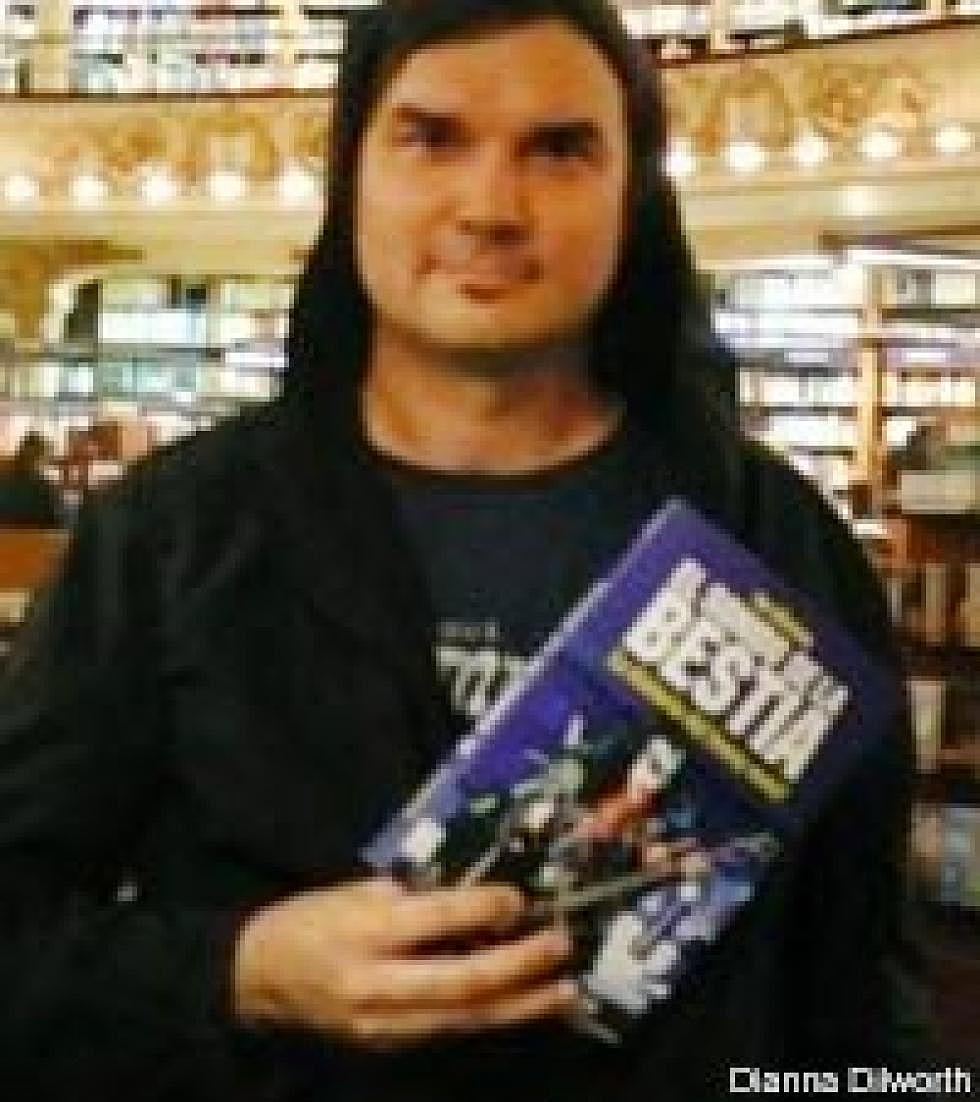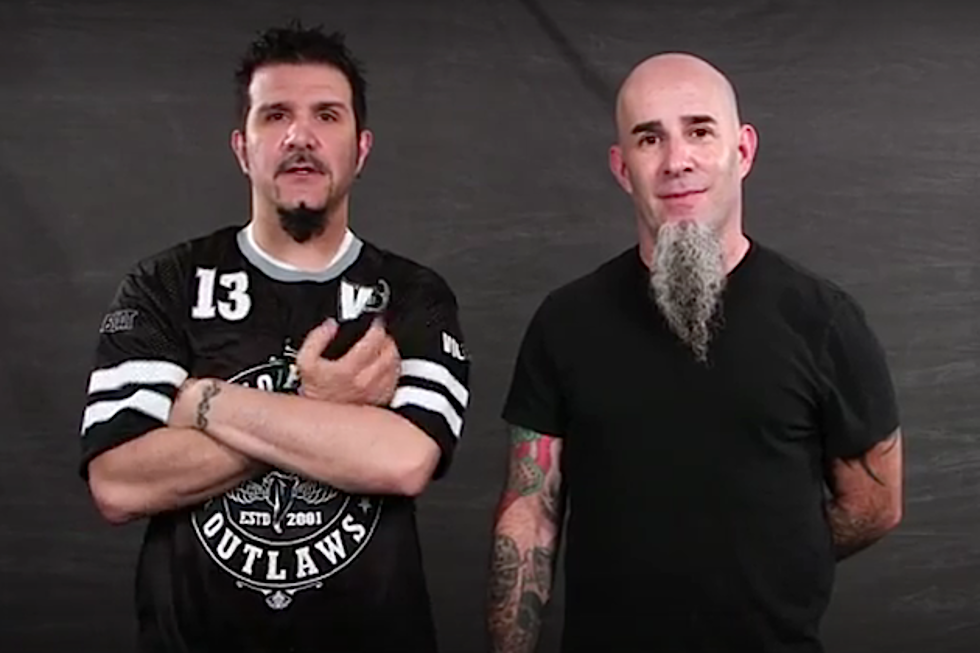
Heavy Metal Historian Ian Christe Discusses Indie Book Publishing
 For the most part, heavy metal fans are information junkies. That's why when you're in the music section of a bookstore, you'll see tons of titles on our beloved bands and overall history of metal. Though there are many essential books on the subject, no heavy metal library is complete without 'Sound of the Beast: The Complete Headbanging History of Heavy Metal.' Written by veteran journalist and metal historian Ian Christe, the 2004 book has been translated in eleven languages and has received praise from both mainstream and staunch metal publications.
For the most part, heavy metal fans are information junkies. That's why when you're in the music section of a bookstore, you'll see tons of titles on our beloved bands and overall history of metal. Though there are many essential books on the subject, no heavy metal library is complete without 'Sound of the Beast: The Complete Headbanging History of Heavy Metal.' Written by veteran journalist and metal historian Ian Christe, the 2004 book has been translated in eleven languages and has received praise from both mainstream and staunch metal publications.
Frustrated with the major publishing houses he had worked with, Christe started Bazillion Points Publishing in 2007. Since its inception, he's gone on to release Daniel Ekeroth's 'Swedish Death Metal' and a few other top notch titles. He just released Annick Giroux's 'Hellbent for Cooking: The Heavy Metal Cookbook,' which would make an ideal stocking stuffer this holiday season. Noisecreep spoke with Christe about the relatively short yet productive history of his company.
Starting an indie record label is financially hard enough to pull off, so what possessed you to start a book imprint? It seems with all of the paper printing costs that it would cost much more to produce a book than vinyl and CDs.
Yeah, it does, thanks for asking! Books are big and heavy as hell. They take up lots of space and are massively expensive to produce and ship compared to CDs. It blows me away to think in terms of tons, but I can say I've helped unleash 10 tons of 'Swedish Death Metal' books on the world! But books are what I know about. I love them. They have incredible staying power. I basically went from reader to writer to author to publisher. I was a magazine writer for 10 years and then worked on my first book, 'Sound of the Beast,' for HarperCollins from 1999 to 2003, and during that time I learned a lot about how books are put together. I was incredibly frustrated many times and started to believe that I could do better. I was wrong about a lot of things, but right about enough things that Bazillion Points has taken off to the point that we now have 10 books in print or in production. Like the best indie labels, I really did it out of necessity ... to get these books out to the public.
Where there any other publishing houses that you modeled yourself after early on?
Publishing nowadays is very corporate, and sad to say corporations suck at producing art, music and books. You'll always be at a disadvantage if you have to justify a book to a committee. The immediate pioneers in my mind are the punk publishers like Henry Rollins' 2.13.61 and Adam Parfrey's Feral House, but guys like Mark Twain and Benjamin Franklin started many indie houses back in their centuries. In fact, publishing is inherently non-conformist and countercultural and small literary publishers like Black Lizard and New Directions are just as punk and scrappy in their own ways. And of course I'm inspired by DIY record labels like Dischord, Metal Blade, Earache, Touch and Go, Kill Rock Stars and Earache, because I've been into music for such a long time.
How long does it typically take from the day you turn in the text and artwork to the day you get the final product in your hand?
It can take anywhere from three to six months. I know that classic bands have formed, released one record and broken up in the same amount of time, but it's pretty fast for a book publisher. But believe me, the days in those months are very, very long.
What are some mistakes you made early on?
Early on is right now! I'm still making all the mistakes, but I came into this with a lot of momentum, enough to fix lots of problems while they're still fixable. This summer, I actually had to recall a book that was about ready to be shipped to us. They stripped dust jackets off of 5,000 books, printed new ones and put them back in the boxes. Damn, that adventure turned a lot of my nose hairs white. I'm probably making horrible mistakes right now that I won't know about for a few years, and once I realize them, I'll cry my eyes out until I die. That's the tragedy of inexperience and of a life spent wrongly. But right now I'm enjoying myself.
Do you ever work like an A&R person would, meaning when one of your writers has handed in a manuscript, have you ever helped guide the direction they are heading in?
I only interfere with the authors on a technical level. Like Jeff Wagner, who's writing 'Mean Deviation,' the progressive metal book. I scour his chapters and ask him a million questions to try to get to the deepest level of detail and understanding possible. But whatever he says in response is law. Even when I edit, I pretty much just rearrange the words that are already on the page. These people are dedicating a year or more of their lives to writing a book; I'm not going to interfere with that. It's ultimately their book. I guess that's the benefit of having an author for a publisher.
Is any subject or scene in heavy metal too obscure to tackle?
I don't really understand that question, so does that automatically mean no (laughter)? A good writer can definitely slow down time, warp reality and make you focus on tiny obscure details. I just believe that if I'm personally interested in something, then I must not be the only person in the world who feels that way. It's not obscure to me, just under-noticed.
Are people constantly pitching you nutty book ideas? For example, has anyone ever pitched you the oral history of Gothic Slam?
Compared to the crap that mainstream publishers get from lunatics stoked on Oprah, I can't complain. We've been booked solid with work and production for six months, though, so I've had to turn a cold shoulder to some worthy projects. Everything has been happening very fast, leading to lots of 16-hour days. My taste in music has been getting weirder and weirder with the long hours, though, so thanks for recommending Gothic Slam. That might sound good at 4:30 [AM] some dark morning!
More From Noisecreep









